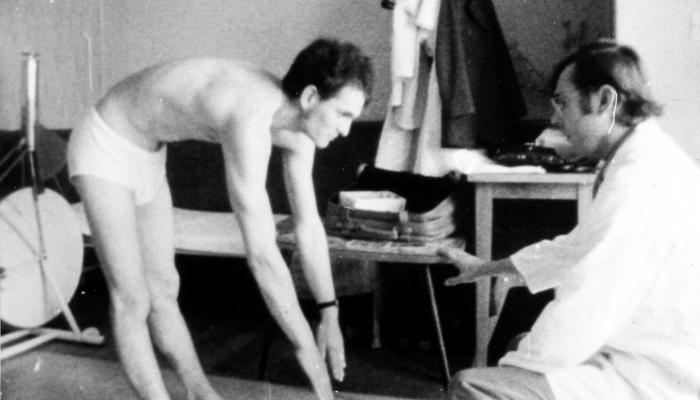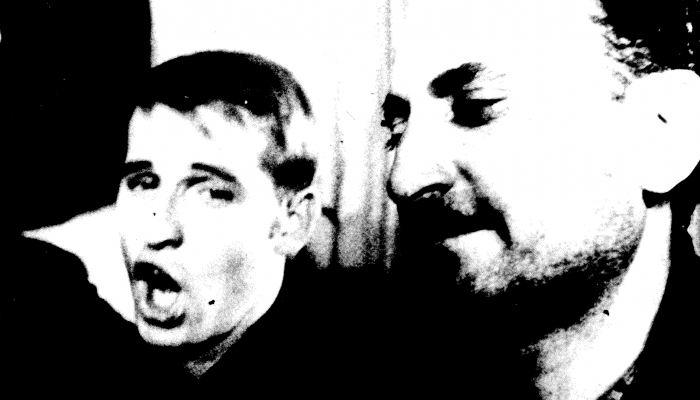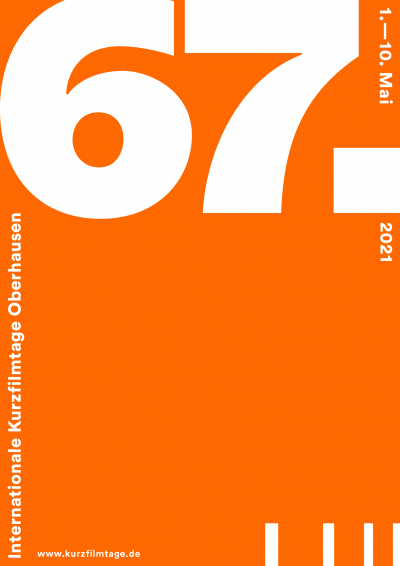Croatian films in theme programme at 67th ISFF Oberhausen: Solidarity as Disruption


Branka Benčić and Aleksandra Sekulić will curate the central theme programme of the 67th International Short Film Festival Oberhausen entitled Solidarity as Disruption, structured into five units. The programme will screen titles from the 1960s and 1970s from former Yugoslavia, as well as recent works from Croatia and the region. The screenings will take place online, during the festival, 1st – 10th May.

The main theme programme of the 67th International Short Film Festival Oberhausen, Solidarity as Disruption, curated by Branka Benčić and Aleksandra Sekulić, will look at the concepts of solidarity, a word frequently used during 2020 and 2021, on different occasions and in various conditions and contexts, while the aim of this film programme is to remind us of its revolutionary potential.
During 2019 and 2020, these two curators envisioned a theme programme for the 2020 festival edition, which was postponed due to the Covid-19 pandemic. This year the programme returns, more current than ever, however, rather than in the halls of the festival venue, Lichtburg Cinema in Oberhausen, it will be available online.
The intent of the programme is to inspire and redefine thinking about solidarity as a disruptive event of reconstituting society, and to reactivate resources and methods of cinema in search of a new infrastructure of solidarity. Taking the values of a community or a society as a starting point, solidarity disrupts the systems of inequality, hierarchy and injustice.
Placing the 1960s and 1970s Yugoslav film production into dialogue with contemporary titles with an international outlook, the programme will explore the archive and continuity of emancipating policies in the previous century, as well as the voices of contemporary struggles that disrupt the hierarchies and constellations of power in Europe, the system of inequality, privatization, exploitation, or, the system of artistic production, interconnections between production and political practice, from de-elitism of production (radical amateurism), everyday politics of space and “imperfect solidarity,” to politics of movement. Through this film programme, the curators explore the historical legacy of the locus of cinematic production in relation to the aesthetics and politics of workers.
Structured into five units – five thematic programmes, such as “Politics of Movement”, the film programme presents films ranging from The Unemployed (1968) by Želimir Žilnik and Special Trains (1972) by Krsto Papić to The Train of Shadows (2017) by Nika Autor, a 30-minute film, which creates a correlation between Papić’s Special Trains and contemporary migrants, film archival footage and mobile phone-recorded videos, and employs a historical narrative to remind us of the social and political significance of trains in Jean-Marie Straub and Danièle Huillet’s Europa 2005-27 Octobre (2006) and the artistic duo Doplgenger.
The programme continues with the screening Museum Songspiel 20XX (2011) by the collective Chto Delat from Saint Petersburg, along with a lecture and discussion, as well as films by Vlatko Gilić (Love, 1972), and the programme unit “Performative Gestures” – a joint public space showcasing the works by Tomislav Gotovac, Damir Očko, Ante Babaja, Bojan Jovanović, and others.
The final programme and conversation are dedicated to collective practices and the legacy of cinema clubs, collaborative projects and community efforts (Ivan Martinac, Sava Trifković, Yugantar Collective…), presenting the different possibilities of representing or creating solidarity through film.
The theme programme will continue in 2022, with an “Epilogue” consisting of three film units.
Branka Benčić is a curator, art historian and comparative literature scholar with a central interest in film & video, curatorial practices, avant-garde movements, experimental and radical artistic positions and the history of exhibition. She is the Director of the Museum of Modern and Contemporary Art in Rijeka. As curator, she has realized numerous relevant group and solo exhibitions and film programmes at institutions, museums and film festivals in Croatia and abroad. She is the long-standing Artistic Director at Apoteka – Space for Contemporary Art and curator at Cinemaniac – Think Film, an exhibiting and research project at Pula Film Festival. She was the commissioner and curator of the Croatian Pavilion at the 57th Venice Biennale (2017).
Aleksandra Sekulić graduated in world literature and literary theory. She is a programme editor at the Centre for Cultural Decontamination (CZKD) in Belgrade. In early 2000s, she was a programme editor and producer at the Academic Film Center in Belgrade and a member of the Low-Fi Video Movement, as well as a member of the group Kosmoplovci and the Media Archeology team.
Since its founding, the International Short Film Festival Oberhausen has been a catalyst for change, an indicator of contemporary development, a forum for heated discussion and the discovery of new trends and talents, as well as one of the vital institutions in the world of short film.
This year’s edition is scheduled to run in online format only, 1st – 10th May, while all other details about ISFF Oberhausen are available at the festival’s official website.
Cover photographs: scenes from Special Trains; The Unemployed
